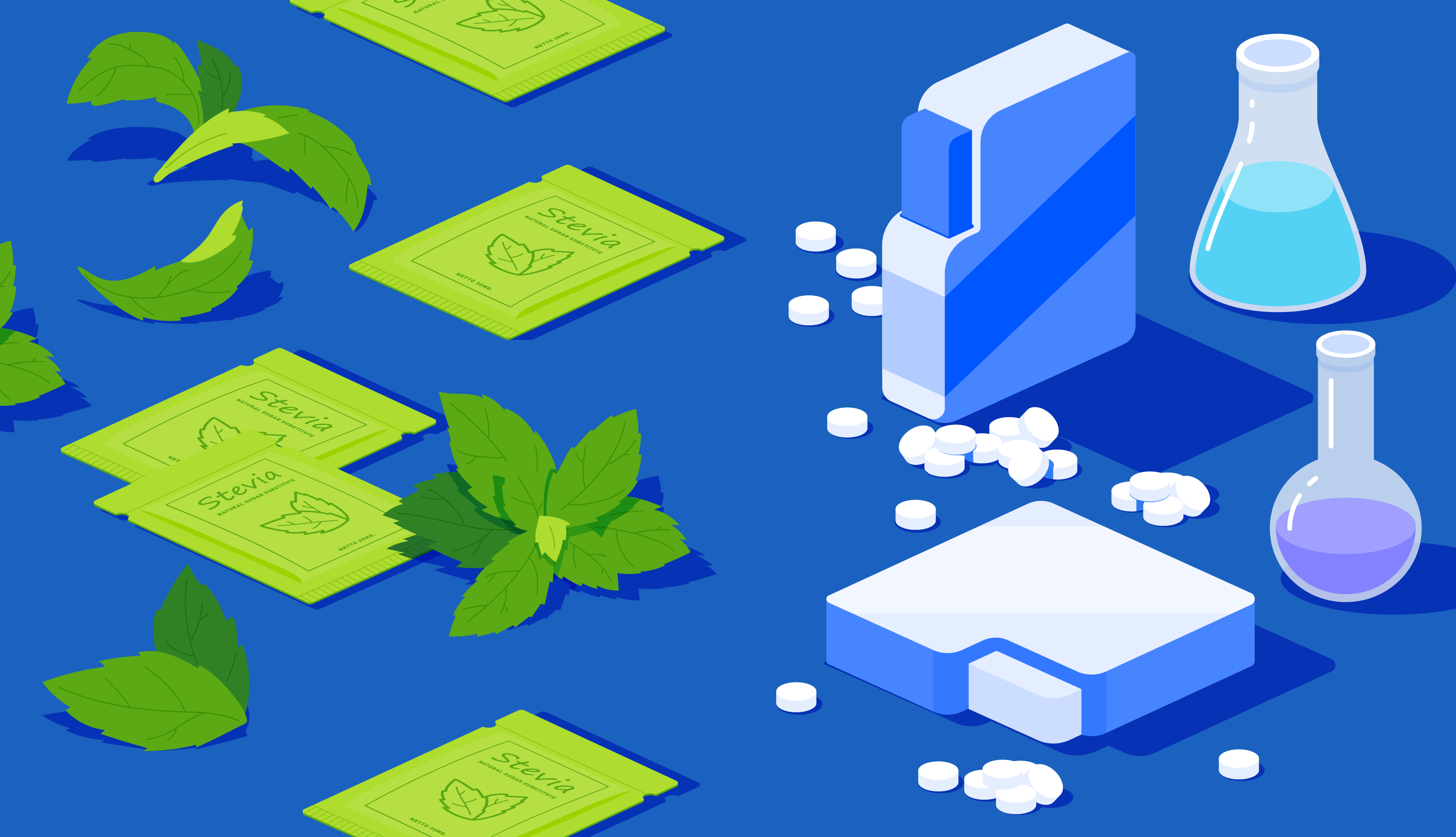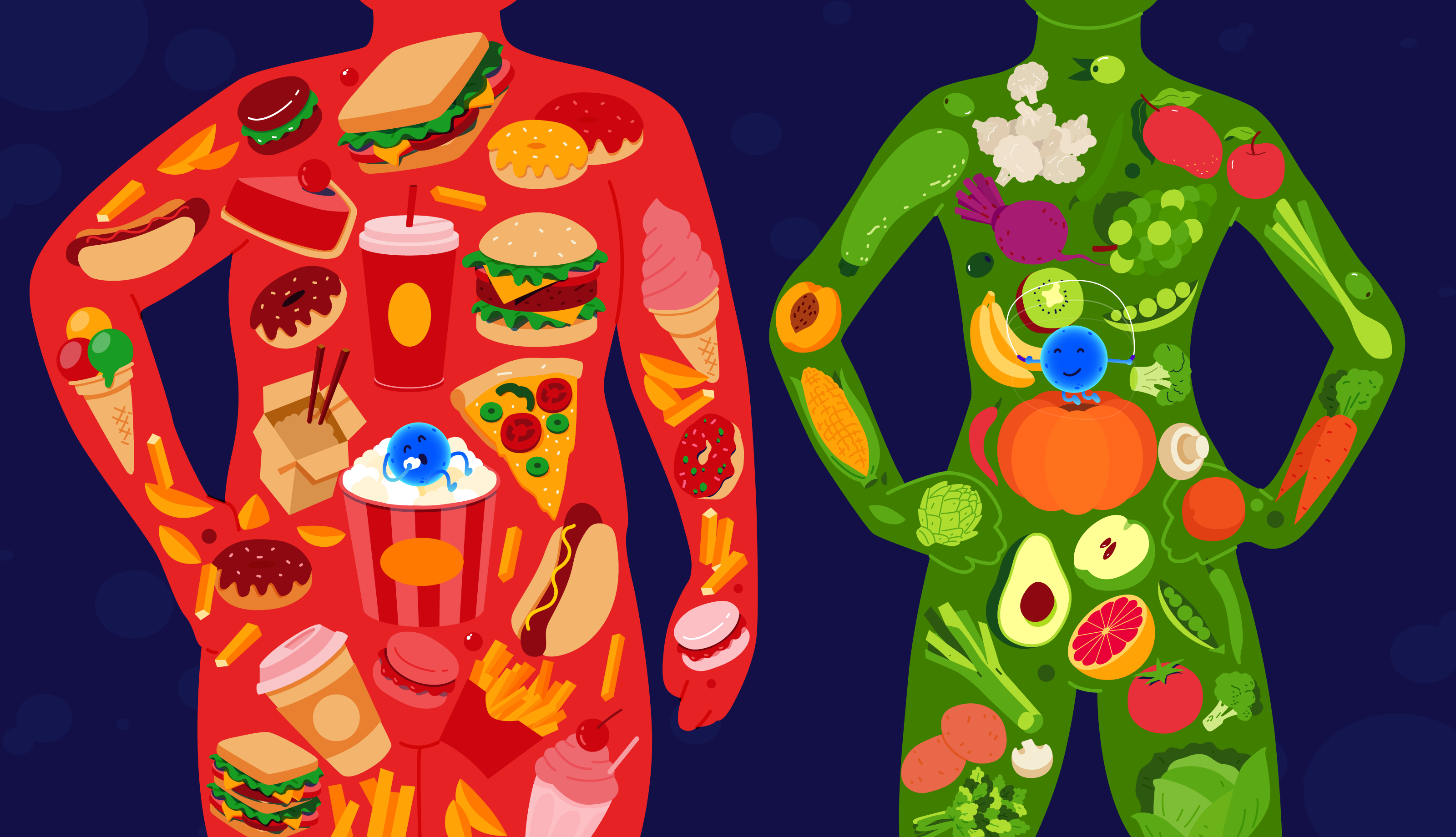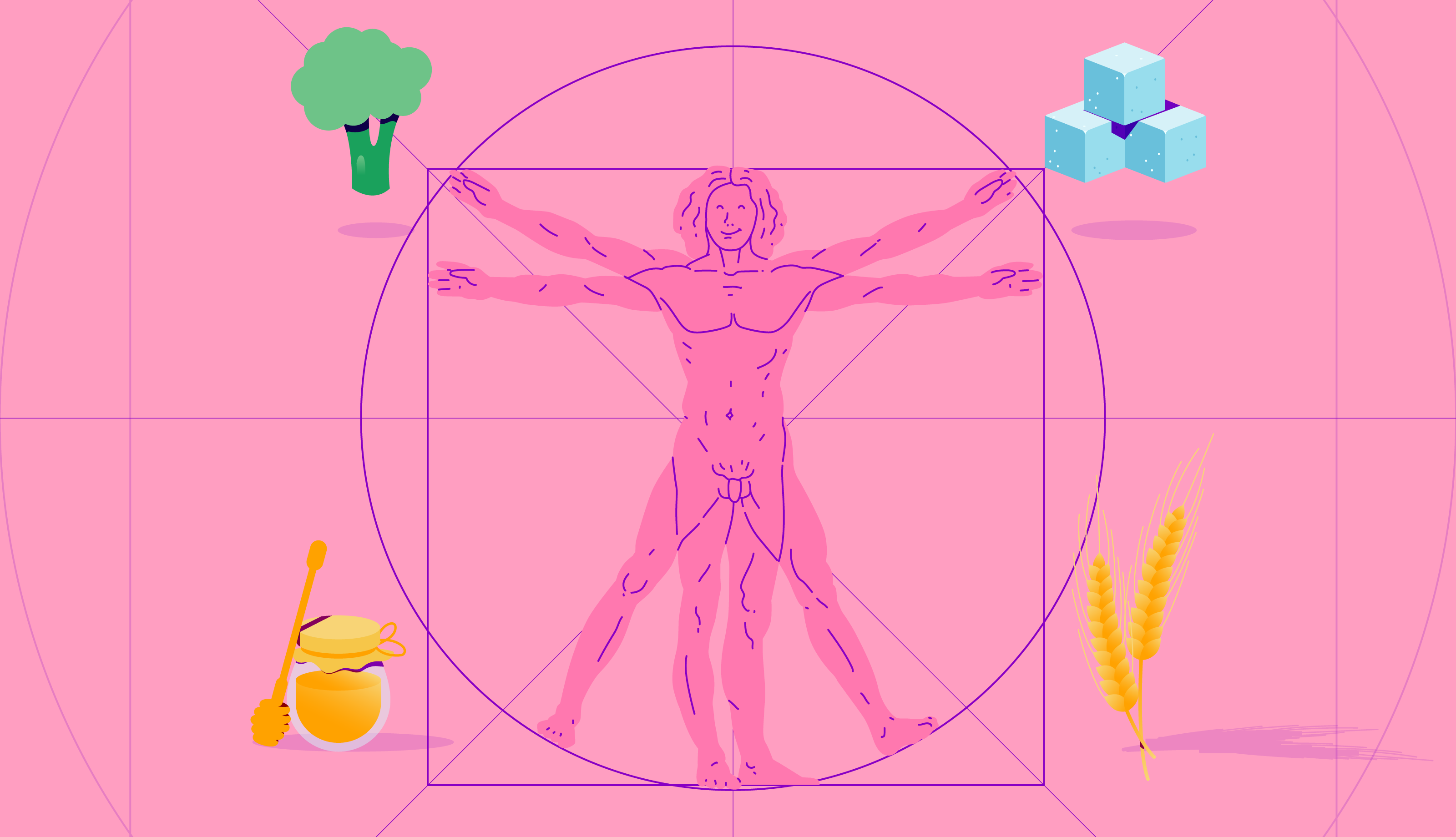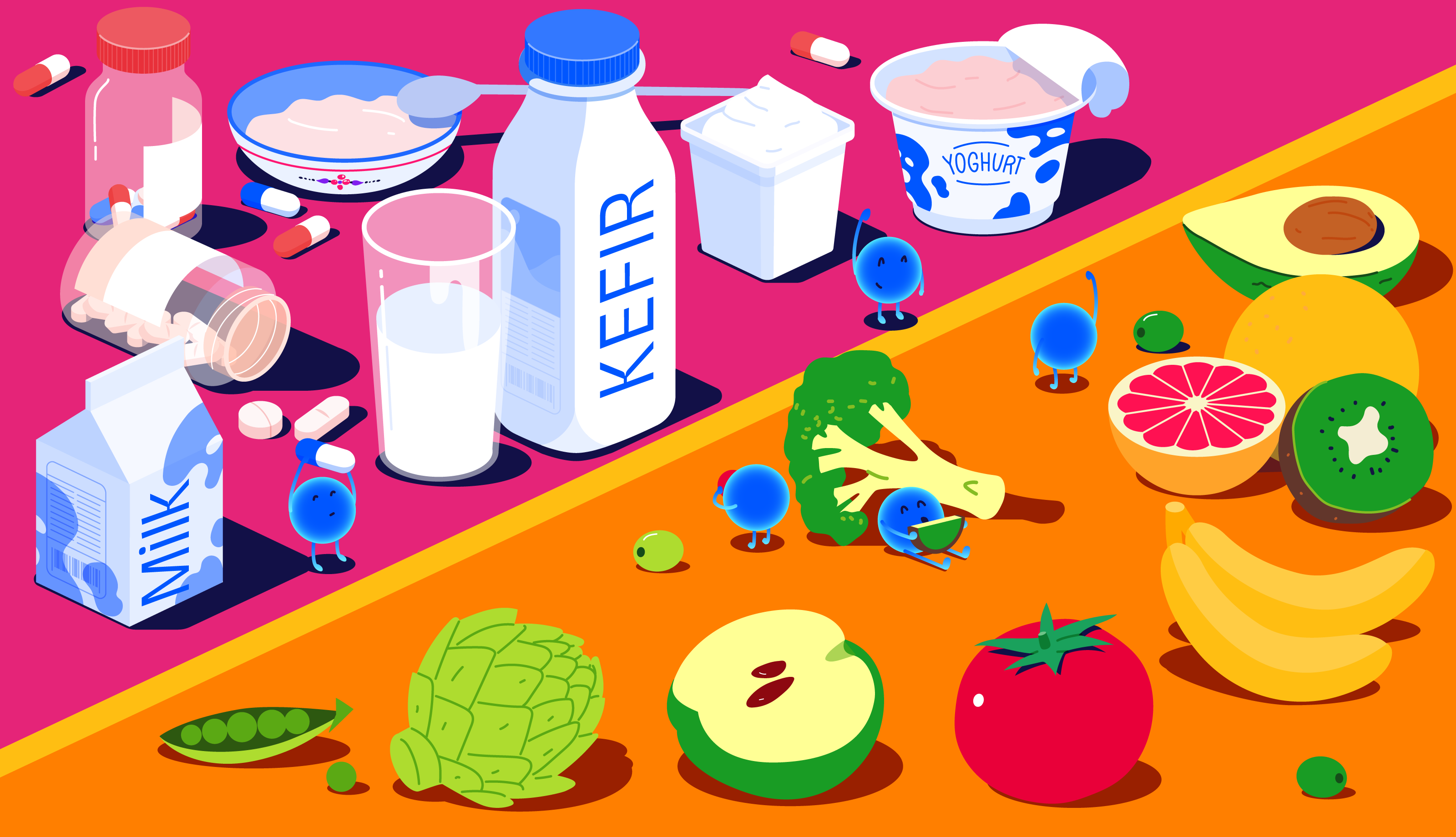The popularity of sugar is now waning for health reasons, but artificial sweeteners are also controversial. Here's what you need to know.
The rising popularity of sugar in Europe between 1500 to 1850 sprung from its links to the slave trade, which provided mass-produced and cheap sugarcane to satisfy growing appetites for this new-found pleasure.
Since then, sugar has become ubiquitous in sweet and savoury foods. But now, sugar is linked to many common diseases, and people are turning to sweeteners to satisfy their sweet tooth without the calories. However, this might not be an ideal approach either.
Table of contents
- What’s the problem with sugar?
- Artificial and natural sweetener: a chemical distinction
- Are healthy sweeteners really healthy?
- What is the safest sweetener for gut bacteria?
- Ways to reduce sugar intake
What’s the problem with sugar?
For many, the best sweetener for tea and coffee is a cube of white sugar, but modern processed food, with its complex manufacturing processes and ingredient mixes, has made it possible to add sugar in lots of obscure places. As a result, it’s harder to figure out where the sugar is hiding.
This has as much to do with our sweet tooth as with the poor nutritional advice we were given between the 1960s to the 1980s, informing households across the nation that a low-fat diet was the best protection against obesity, heart disease, and diabetes. Manufacturers scrambled to make low-fat versions of traditionally high-fat foods, like dairy products.
Free sugars, such as glucose, fructose, sucrose, lactose, and galactose, can be immediately metabolised by the body for energy in the form of glucose. This differs from complex sugars, such as starches and complex carbohydrates, that take longer to transform into glucose.
What happens to sugar in the body
Sugar is processed in the liver into fat and released into the bloodstream where it enters our fat stores (adipose tissue) and is kept as a store of energy. Our body is required to maintain a minimum concentration of blood glucose as our brains depend on glucose for up to 25% of its energy needs.
The body strictly controls blood glucose through the opposite-acting hormones insulin and glucagon, the levels of which rise and fall during the course of a day in response to food and fasting.
Excess intake of glucose leads to a metabolic condition known as glucose intolerance, wherein our body cannot produce an adequate insulin response to glucose intake. This results in uncontrollably high levels of glucose in our blood that can damage the blood vessels.
The steep rise in daily sugar intake observed in populations in the western world over the last few decades has now been linked to the diseases that were previously attributed to saturated fat intake.
☝️TIP☝️ The maximum amount of recommended “added” sugar (not sugars naturally present in whole foods) intake per day is currently 37.5 grams for men and 25 grams for women.
Artificial and natural sweetener: a chemical distinction
Remember, “artificial” and “natural” are chemical distinctions, and do not in tell you which one is better.
Amidst the sugar crisis, which led to the UK imposing a sugar tax in 2018, using “healthy sweeteners” instead has become a popular alternative. Sweeteners are sugar substitutes that mimic the sweet taste of sugar, but have negligible calories compared to free sugars.
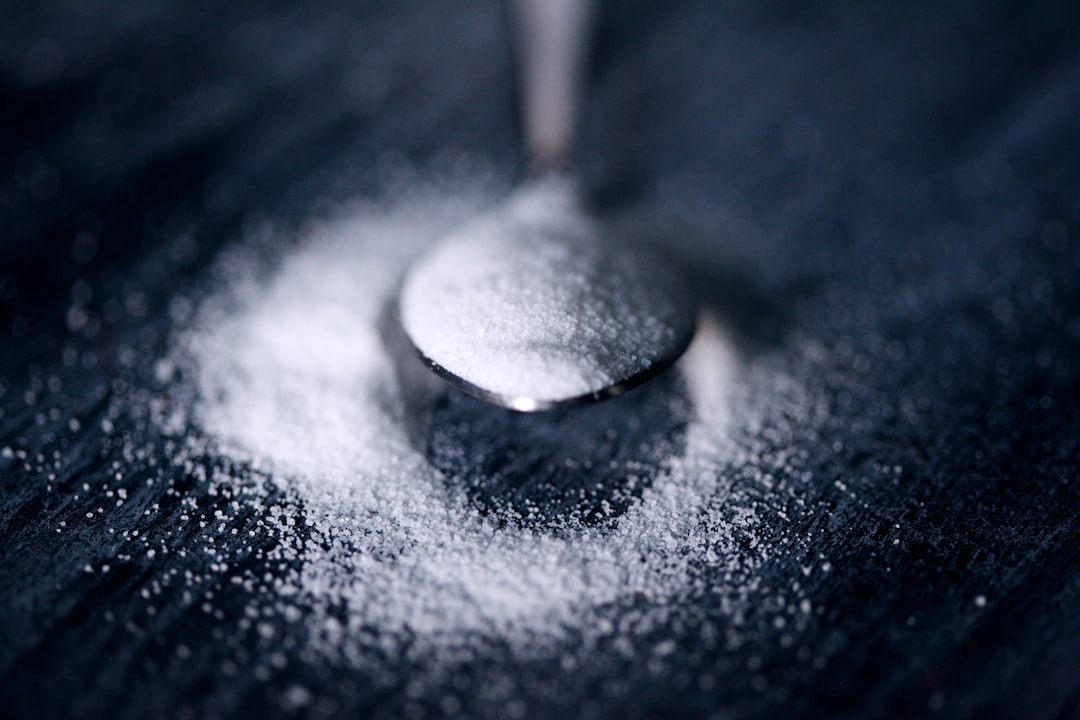
They may be referred to by several confusing names, such as ‘low calorie sugar’, ‘low calorie sweeteners’, or ’sugar sweeteners’. Sweeteners are low in calories compared to sugar because they cannot be metabolised by the body in the usual sugar pathways, and are many times sweeter than free sugars, so a much smaller amount is needed to achieve the same sweetness.
There are two types of sweeteners: artificial sweeteners and natural sweeteners. While artificial sweeteners are chemically manufactured, a natural sweetener is extracted from plants - they are also known as plant based sweeteners. These sugar substitutes also affect the health of our gut microbiome, an ecosystem in the human gut made up of trillions of bacterial cells.
| Sweetener | How much sweeter than sugar |
|---|---|
| Saccharin (also known as Sweet‘n Low) | 300-500 times |
| Aspartame (also known as Equal or Nutrasweet) | 200 times |
| Sucralose (also known as Splenda or e955) | 1,000 times |
| Stevia | 250 times |
Saccharin, aspartame, and sucralose are three common artificial sweeteners. Natural sweeteners include Stevia and polyols (sorbitol, erythritol, mannitol, and xylitol). Which sweetener is best may depend on underlying health conditions and individual reactions to sweeteners that differ from person to person.
Are healthy sweeteners really healthy?
In response to this, the European Food Safety Authority has set an Acceptable Daily Intake (ADI) limit for sweeteners, which differs for each sweetener. Most consumers may not be aware of this ADI, however they are usually far more than what would be consumed in a day. Remember, the best sweeteners are ones that don’t affect our health.
Acceptable Daily Intake for various sweeteners
| Sweetener | ADI, mg per kg of body weight |
|---|---|
| Saccharin (also known as Sweet‘n Low) | 5 |
| Aspartame (also known as Equal or Nutrasweet) | 50 |
| Sucralose (also known as Splenda or e955) | 5 |
| Stevia | 4 |
| Polyols (Xylitol, erythritol, mannitol, sorbitol) | Not defined, generally considered safe |
Natural sweeteners for diabetics
One thing is clear: artificial sweeteners, especially saccharin, increase the risk of glucose intolerance and diabetes type II, and this is mediated at least partially by the gut microbiome (we discuss this below). At this time, it is not known whether alternative sweeteners are the best natural sweetener for diabetics.
Sweeteners and weight loss
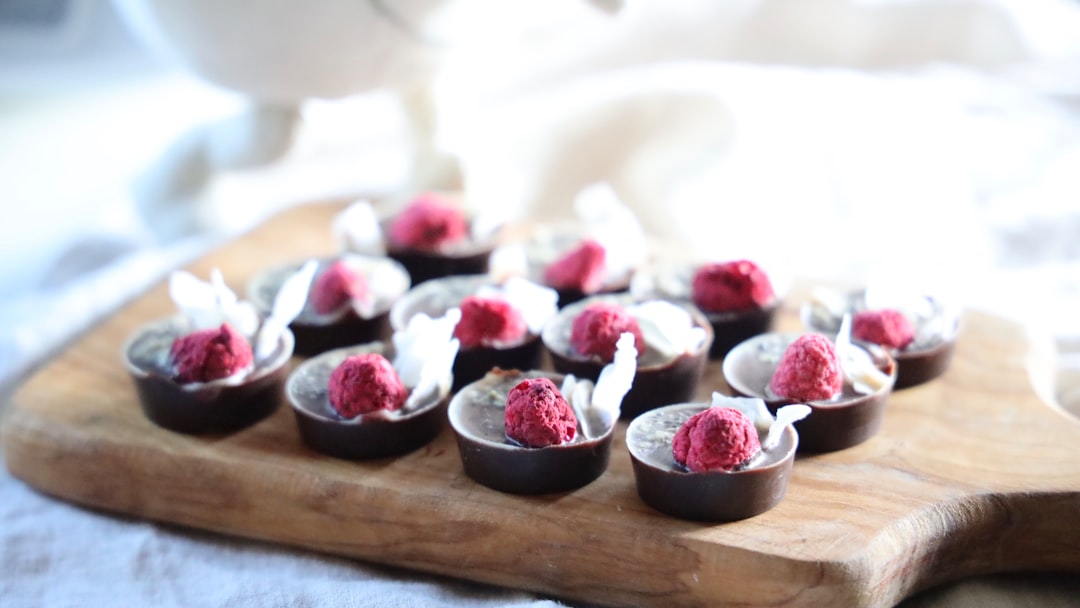
There is conflicting evidence on whether artificial sweeteners aid in weight loss. Studies that have found no impact on weight loss suggest that artificial sweeteners can alter taste preferences and condition participant’s taste buds to prefer sweetness.
What is the safest sweetener for gut bacteria?
The effects of sweeteners on gut bacteria still require a lot of research, so right now it’s not possible to say definitely what the safest sweetener or healthiest sweetener is. However, it is known that some artificial sweeteners have negative effects on gut bacteria, and some natural sweeteners may provide fuel for beneficial microbes.
☝️TIP☝️Get your microbiome health status with the [Atlas Microbiome Test](https://atlasbiomed.com/uk/microbiome. Take it at home, send off your sample and access your results online.
Not great: sucralose and saccharin
Of the artificial sweeteners, only saccharin and sucralose shift the populations of gut microbiota. Saccharin, which is 300-500 times sweeter than sucrose, inhibited glucose fermentation by the gut microbiome in a study performed on rats, and a different study showed that it decreased the levels of two types of gut bacteria by up to 40%.
A study in humans showed that saccharin produced a 30% alteration in metabolism, contributing to glucose intolerance and dysbiosis. Glucose intolerance is thought to occur as a result of saccharin’s impact on the gut microbiome.
In the mice fed saccharin, Akkermansia muciniphila, an important bacterium associated with a healthy gut lining and lean body weight, was underrepresented. Nevertheless, more studies on humans are needed to confirm the seemingly negative impact of saccharin on the body.
Aspartame: inconclusive results
Aspartame is 200 times sweeter than sucrose, and there is very little scientific data on how it may affect the gut microbiome. In one study on humans, aspartame did not affect insulin regulation nor blood glucose levels in both diabetic patients and normal subjects.
However, this study only looked at a very small sample of 22 people. News reports on the side effects of aspartame have led the public to search for aspartame free sweeteners, but there is little evidence to suggest that aspartame is better or worse than other sweeteners.
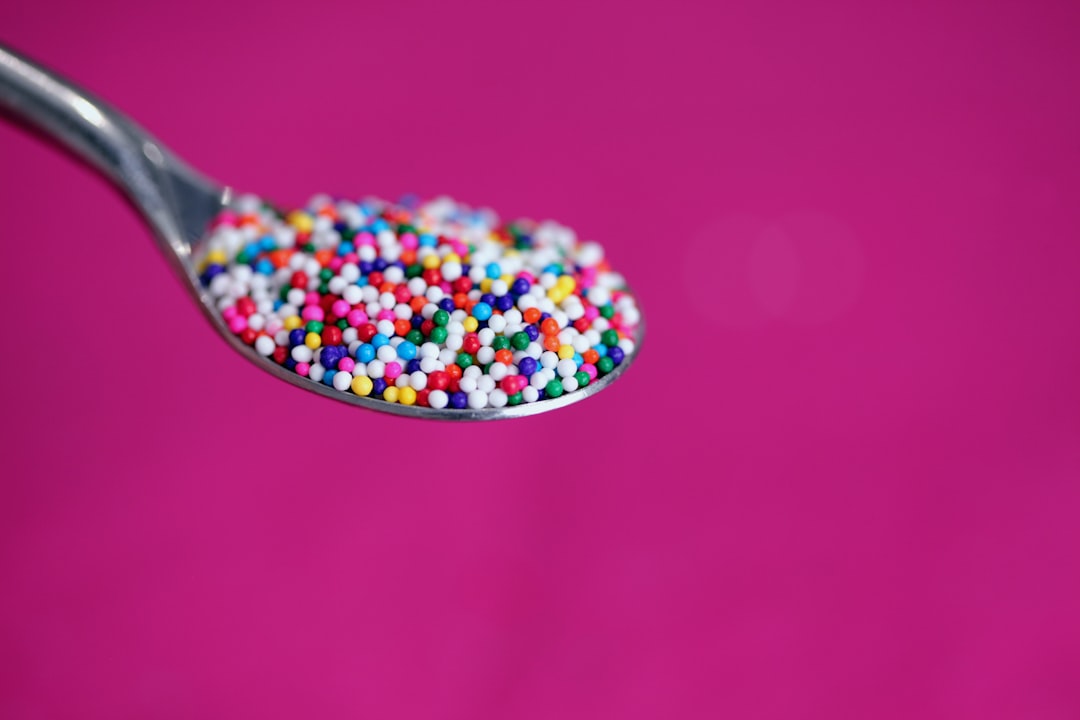
A 2016 study linked aspartame consumption to glucose intolerance in obese people, but not in those with healthy BMI. However, sweeteners without aspartame are only really important for those with a rare genetic condition known as phenylketonuria, to whom aspartame is toxic - but is unlikely to affect healthy individuals.
What is sucralose made from? It is a chemically modified molecule of sucrose. The sweetener sucralose is up to 1,000 times sweeter than sucrose, and has been found to decrease the total number of bacteria in the gut microbiome in rats that were fed sucralose for 12 weeks.
What is the best sweetener for gut bacteria?
Of the natural sweeteners (that occur in nature and are not chemically created in a lab), stevia (250 times sweeter than sucrose) and the polyol xylitol have been found to somewhat affect gut microbiota composition, but evidence is scant at the moment.
However, excessive intake of polyols has a laxative effect. This is particularly uncomfortable for people with irritable bowel syndrome (IBS), as polyols worsen the flatulence, abdominal discomfort, and diarrhea associated with IBS.
☝️TIP☝️Polyols do not cause tooth decay, and do not interfere with insulin levels or glucose tolerance.
Ways to reduce sugar intake
There is really no best artificial sweetener or best natural sweetener, and more research is required to evaluate the effects of sweeteners on human health and the gut microbiome. Fortunately, there are practical ways to cut down on sugar without resorting to sweeteners:
- Cook at home: home-prepared meals contain much less sugar than processed foods.
- Avoid highly processed food, take-aways, and packaged sauces
- Choose full-fat products instead of low-fat ones
- Make sure you consume enough fiber, protein, and fat
- Choose processed foods with low amounts of added sugar (read the label).
- Drink water instead of fruit juice, vitamin water, or other sweet drinks.
- Cut out breakfast cereals and other foods with highly refined sugars
- Azad M. B., et al., Nonnutritive sweeteners and cardiometabolic health: a systematic review and meta-analysis of randomized controlled trials and prospective cohort studies, 2017
- Kuk J. L. and Brown R. E, Aspartame intake is associated with greater glucose intolerance in individuals with obesity, 2016
- Lenhart A. and Chey W. D., A Systematic Review of the Effects of Polyols on Gastrointestinal Health and Irritable Bowel Syndrome, 2017.
- Ruiz-Ojeda F. J., et al., Effects of Sweeteners on the Gut Microbiota: A Review of Experimental Studies and Clinical Trials, 2019
- Bartolotto C., Does Consuming Sugar and Artificial Sweeteners Change Taste Preferences?, 2015

